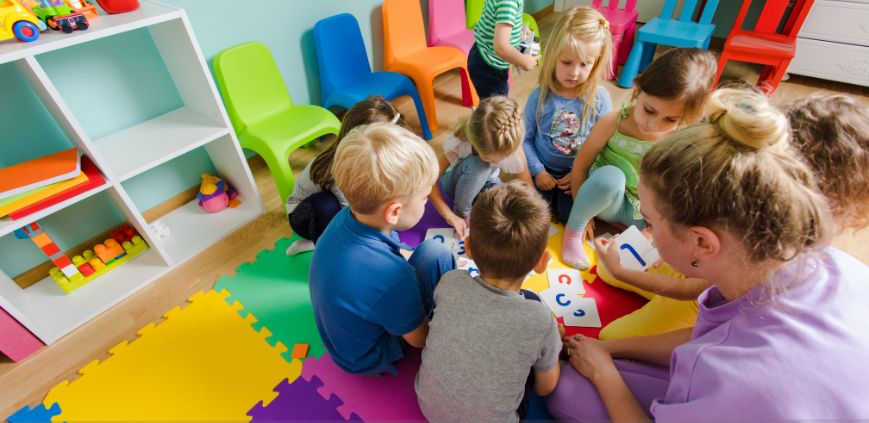Finding the Best Daycare: What to Observe During Your Visit
You want the very best for your child in every aspect of their lives. That’s why choosing the right daycare for them is so crucial. Their daycare can have a large impact on their early development and well-being. With numerous options available, it's essential to know what to look for to ensure your child is in a safe, nurturing and stimulating environment. This article will explore the key factors to consider when visiting potential daycares.
Curriculum and Learning Environment
When your child is at daycare, you want to know that they’re participating in engaging and mentally stimulating activities. After all, some of the most important development that a child will go through occurs during the first few years of their lives, making early development essential. A stimulating environment for your child should consist of:
Structured and Vast Curriculum
Look for a structured, age-appropriate curriculum that includes a balance of educational activities, playtime and rest.
A Variety of Learning Materials
You should look for a daycare that offers a plethora of educational toys, books and resources that cater to different developmental stages.
Engaging and Stimulating Outdoor Play
Adequate outdoor play areas are an essential part of creating an effective learning environment. The play areas should have safe equipment that allows for physical development and exploration.
Safety and Cleanliness
It’s no secret that children are not the cleanest bunch. It’s very easy for children to come back home sick, especially if they’re in a facility that doesn’t take the proper precautions to ensure a safe and clean space. Safety and cleanliness should always be a top priority at daycares. Look for the following:
Secure Entrances
Ensure the daycare has controlled access to prevent unauthorized individuals from entering.
Childproofing
Check for covered electrical outlets, secure furniture and safety gates.
Cleanliness
The facility should be clean and well-maintained. Pay attention to the cleanliness of toys, floors, bathrooms and eating areas.
Health Protocols
Always make sure to ask about their hygiene practices, including handwashing, diaper changing and illness policies.
Communication and Parent Involvement
When your child is at daycare and you’re away from them, that doesn’t mean you’re throwing in the towel for the day. You will still want to be in touch with the daycare throughout the day to make sure everything is going well. It is totally up to you and your comfort level how often you’d like to check in–but you want to make sure that no matter how many times you do check-in, there is effective communication between parents and caregivers. Pay attention to:
Updates
The daycare should provide regular updates on your child’s progress and daily activities, either through verbal communication, written reports or digital platforms.
Parent Involvement
Consider looking for opportunities for parent involvement, such as volunteering, attending events or joining parent-teacher meetings.
Daily Schedule and Routine
Consistency is key when it comes to a successful day at daycare. When you’re exploring your daycare options, make sure to try to get a sense of what an average day at daycare might look like for your child. And if there is a routine, is it one that you are interested in your child participating in? Here are some of the details to pay attention to:
Daily Schedule
Review the daily schedule to ensure it includes a mix of educational activities, free play, nap times, meals or whatever else you believe is essential for your child’s well-being.
Flexibility
While a routine is important, a good daycare should also accommodate each child's individual needs. Pay attention to whether the daycare is willing to change things around to support what each child needs.
Gut Feeling
This one is a little more difficult to quantify–but parents will surely understand it. When you tour the daycare, speak to the caregivers, evaluate the area and more and listen to your gut. Ultimately, you know what is best for your child. Trust that feeling if something doesn’t seem right or isn’t within your comfort level. There will always be another daycare to try out!

